-
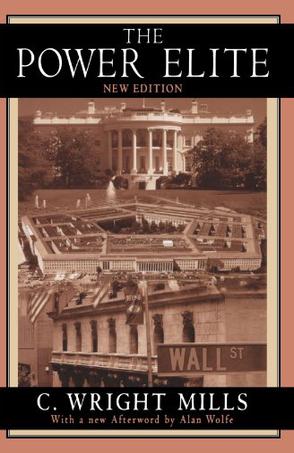
The Power Elite
First published in 1956, The Power Elite stands as a contemporary classic of social science and social criticism. C. Wright Mills examines and critiques the organization of power in the United States, calling attention to three firmly interlocked prongs of power: the military, corporate, and political elite. The Power Elite can be read as a good account of what was taking place in America at the time it was written, but its underlying question of whether America is as democratic in practice as it is in theory continues to matter very much today. What The Power Elite informed readers of in 1956 was how much the organization of power in America had changed during their lifetimes, and Alan Wolfe's astute afterword to this new edition brings us up to date, illustrating how much more has changed since then. Wolfe sorts out what is helpful in Mills book and which of his predictions have not come to bear, laying out the radical changes in American capitalism, from intense global competition and the collapse of communism to rapid technological transformations and ever changing consumer tastes. The Power Elite has stimulated generations of readers to think about the kind of society they have and the kind of society they might want, and deserves to be read by every new generation. -
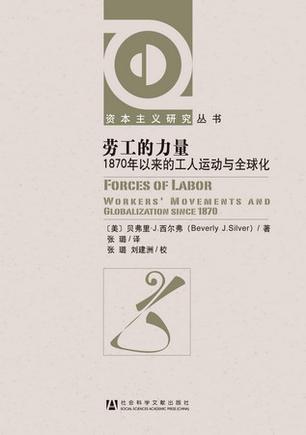
劳工的力量
本书依据国际劳工运动大量的新数据库,对劳工运动进行了长历史时段和全球范围的研究,揭示出19世纪晚期以来地方的劳工运动与国际范围内的政治、经济、社会进程是相关的。通过对所选的全球工业一种有深度的、实证性的分析,分析了劳工运动的重心在国家之间转移,以及与生产的地理分布的关系。 -
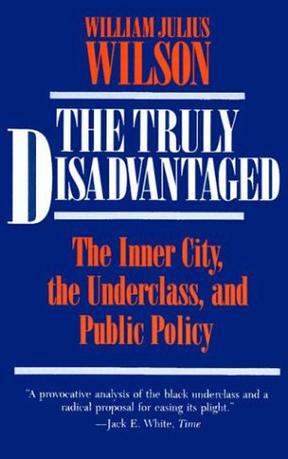
The Truly Disadvantaged
"The Truly Disadvantaged should spur critical thinking in many quarters about the causes and possible remedies for inner city poverty. As policy makers grapple with the problems of an enlarged underclass they--as well as community leaders and all concerned Americans of all races--would be advised to examine Mr. Wilson's incisive analysis."--Robert Greenstein, New York Times Book Review "'Must reading' for civil-rights leaders, leaders of advocacy organizations for the poor, and for elected officials in our major urban centers."--Bernard C. Watson, Journal of Negro Education "Required reading for anyone, presidential candidate or private citizen, who really wants to address the growing plight of the black urban underclass."--David J. Garrow, Washington Post Book World Selected by the editors of the New York Times Book Review as one of the sixteen best books of 1987. Winner of the 1988 C. Wright Mills Award of the Society for the Study of Social Problems. -
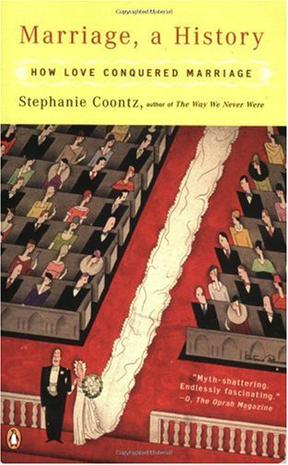
Marriage, a History
Marriage has never been more fragile. But the same things that have made it so have also made a good marriage more fulfilling than ever before. In this enlightening and hugely entertaining book, historian and marriage expert Stephanie Coontz takes readers from the marital intrigues of ancient Babylon to the sexual torments of Victorian couples to demonstrate how recent the idea of marrying for love is-and how absurd it would have seemed to most of our ancestors. It was only 200 years ago that marriage began to be about love and emotional commitment, and since then the very things that have strengthened marriage as a personal relationship have steadily weakened it as a social institution. Marriage, A History brings intelligence, wit, and some badly needed perspective to today's marital debates and dilemmas. -
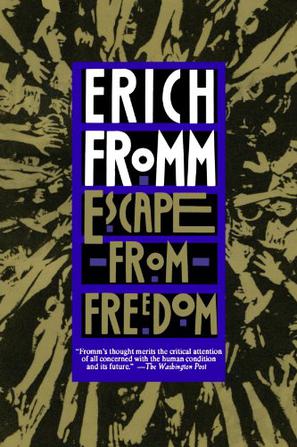
Escape from Freedom
If humanity cannot live with the dangers and responsibilities inherent in freedom, it will probably turn to authoritarianism. This is the central idea of Escape from Freedom, a landmark work by one of the most distinguished thinkers of our time, and a book that is as timely now as when first published in 1941. Few books have thrown such light upon the forces that shape modern society or penetrated so deeply into the causes of authoritarian systems. If the rise of democracy set some people free, at the same time it gave birth to a society in which the individual feels alienated and dehumanized. Using the insights of psychoanalysis as probing agents, Fromm’s work analyzes the illness of contemporary civilization as witnessed by its willingness to submit to totalitarian rule. -
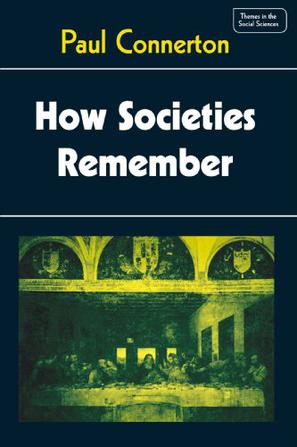
How Societies Remember
In treating memory as a cultural rather than an individual faculty, this book provides an account of how bodily practices are transmitted in, and as, traditions. Most studies of memory as a cultural faculty focus on written, or inscribed transmissions of memories. Paul Connerton, on the other hand, concentrates on bodily (or incorporated) practices, and so questions the currently dominant idea that literary texts may be taken as a metaphor for social practices generally. The author argues that images of the past and recollected knowledge of the past are conveyed and sustained by ritual performances and that performative memory is bodily. Bodily social memory is an essential aspect of social memory, but it is an aspect which has until now been badly neglected. An innovative study, this work should be of interest to researchers into social, political and anthropological thought as well as to graduate and undergraduate students.